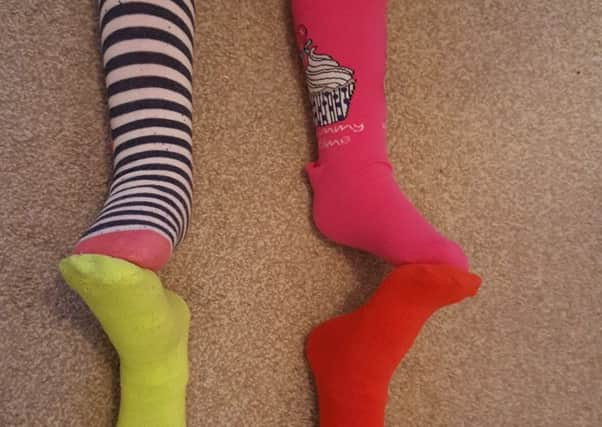Raising awareness of Lymphoedema


Lymphoedema arises when the lymphatic system which regulates fluid balance in the body and helps to fight infection, does not work properly. This can result in a build-up of fluid and painful swelling anywhere in the body but mostly in the limbs.
Lynne Whiteside, Lymphoedema Clinical Lead for the Southern Trust said: “Lymphoedema is a chronic, progressive condition with no known cure as yet. Whilst Lymphoedema in adults is quite common and more so amongst cancer patients, it can be quite rare in children. The cause of Lymphoedema in children is often genetic and as it can affect their development, it is absolutely vital to diagnose Lymphoedema as early as possible to improve and control swelling or any other symptoms.”
Advertisement
Hide AdAdvertisement
Hide AdOne mother of a now six year old girl, who was diagnosed as a baby said: “It was terrifying once we realized how rare it was to be born with Lymphoedema. We learned about the treatments to help maintain the swelling and that the earlier this treatment was started the better.
“Our Lymphoedema Physiotherapist quickly became one of the most important people in our lives.
“The expertise, knowledge, advice and support we receive from her is invaluable. We have gained confidence in meeting our daughter’s care needs and are less anxious about the issues that this condition brings on a daily basis. Thankfully with this help our daughter lives a very normal life – just with a few modifications.
“She doesn’t see her condition as a barrier in any way and long may that continue.”
Advertisement
Hide AdAdvertisement
Hide AdThe Southern Trust Lymphoedema service caters for all ages and works closely with specialist paediatric physiotherapists when required to support children and young people with the condition.
Unexplained swelling should be discussed with your GP in the first instance. Some investigations may need to be completed and referral can be made to the Lymphoedema service for assessment and management.
For more advice or information go to www.lymphoedema.org